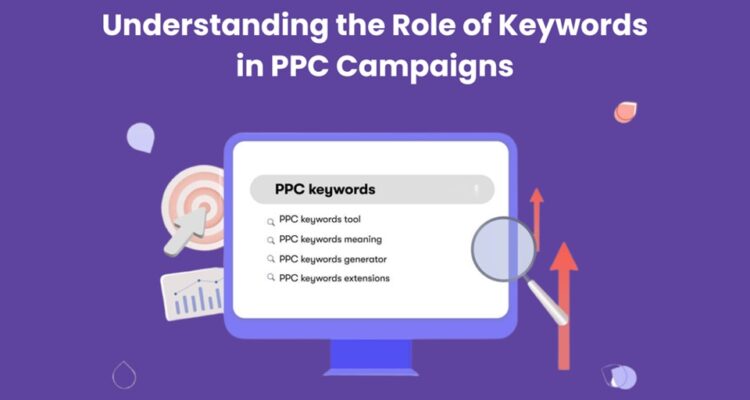Knowing how important keywords are to Pay-Per-Click (PPC) campaigns in digital marketing is like having a hidden key to success online. What exactly is PPC, then? PPC is a dynamic marketing approach in which advertisers pay a price each time one of their advertisements is clicked. PPC is one of the important topics taught in established Marketing Courses. When used correctly, this strategy may significantly increase the return on investment by directing targeted visitors to a website in an effective manner.
In this blog, we will attempt to explain What is PPC and explore the complex relationship between keywords and successful campaign results.
Table of Contents
The Foundation: What Is PPC?
PPC is a potent digital marketing tactic in which sponsors fork over a certain amount each time a click is made on their advertisement. Advertisers bid on the terms they want to activate their advertising, much as in an online auction. The advertisement goes up for auction, and the highest bidder’s ad is seen when a user types in a search query that contains those keywords. Pay-per-click advertising is dynamic and instantaneous because the whole process happens in milliseconds.
Understanding Keywords In PPC: The Bedrock Of Success
In PPC, keywords are the pivotal point that links user’s searches with the displayed adverts. Consider them as the intermediary between advertisement offers and user intent. What distinguishes a PPC campaign that is successful from one that is barely treading water is the effective use of keywords. Choosing the appropriate keywords for marketing courses is similar to picking the most relevant textbooks; both guarantee that the proper people see your message.
Types Of Keywords: Navigating The PPC Seas
Three main categories may be used to group keywords in PPC advertising: phrase match, precise match, and wide match. Every kind has unique characteristics that affect the reach and targeting of your advertisements. Ads for a variety of linked queries are shown when a broad match casts a wide net. By limiting the emphasis, phrase match displays advertisements for searches containing the precise phrase or closely related variants. The option with the most attention is called exact match; it only shows advertising for searches that exactly match the selected keywords.
Negative Keywords: The Unsung Heroes
Finding and eliminating the incorrect keywords is just as vital as choosing the correct ones. Enter negative keywords. You want to prevent your advertising from showing up for these keywords. For example, in the case of marketing courses, adding “free” as a negative keyword guarantees that your ad won’t appear for searches looking for free courses.
The Long-Tail Advantage: Quality Over Quantity
High-traffic, generic keywords might be attractive in PPC. Still, the true magic often occurs in the long tail. Long-tail keywords target a specialised demographic that is more likely to convert since they are more precise. Consider a long-tail keyword like “Digital Marketing Courses for Beginners” as an alternative to “Marketing Courses” since it may attract a more targeted audience and improve conversion rates.
Crafting Compelling Ad Copy: Where Art Meets Science
While keywords provide the foundation, strong ad text keeps a PPC campaign cohesive. Your advertisement must be both appealing and relevant. It should address the user’s objective and provide a crystal-clear call to action. Within the context of marketing courses, this might include emphasising USPs like industry-leading teachers or interactive, real-world modules.
Adapting To Change: The Dynamic Nature Of Keywords
Like everything else in the digital world, keywords are constantly changing. Staying ahead of the curve requires assessing and modifying your keyword strategy regularly. New rivals emerge, industry trends change, and user behaviour changes. In PPC, a static keyword strategy leads to declining results. Keep your campaign flexible and adaptable to the continuously shifting digital landscape.
The Metrics That Matter: Beyond Clicks
Clicks are an essential PPC measure, but they don’t tell the whole story. Examine other vital data like Click-Through Rate (CTR), conversion rate, and Return On Ad Spend (ROAS) to determine the actual effect of your campaign. These analytics provide a more detailed picture of how well your audience responds to your keywords and ad language.
Conclusion
Knowing the subtleties of PPC keyword research is like being an expert with a potent instrument in Digital Marketing Courses, where each click costs money. Creating a message that connects with your audience takes more than simply word choice. You also need to gauge their requirements and feel their pulse. A deliberate and systematic approach to keywords may be the game-changer that takes your PPC campaigns to new heights, whether you’re navigating the world of marketing courses or any other field.


Leave a Reply